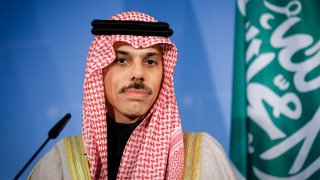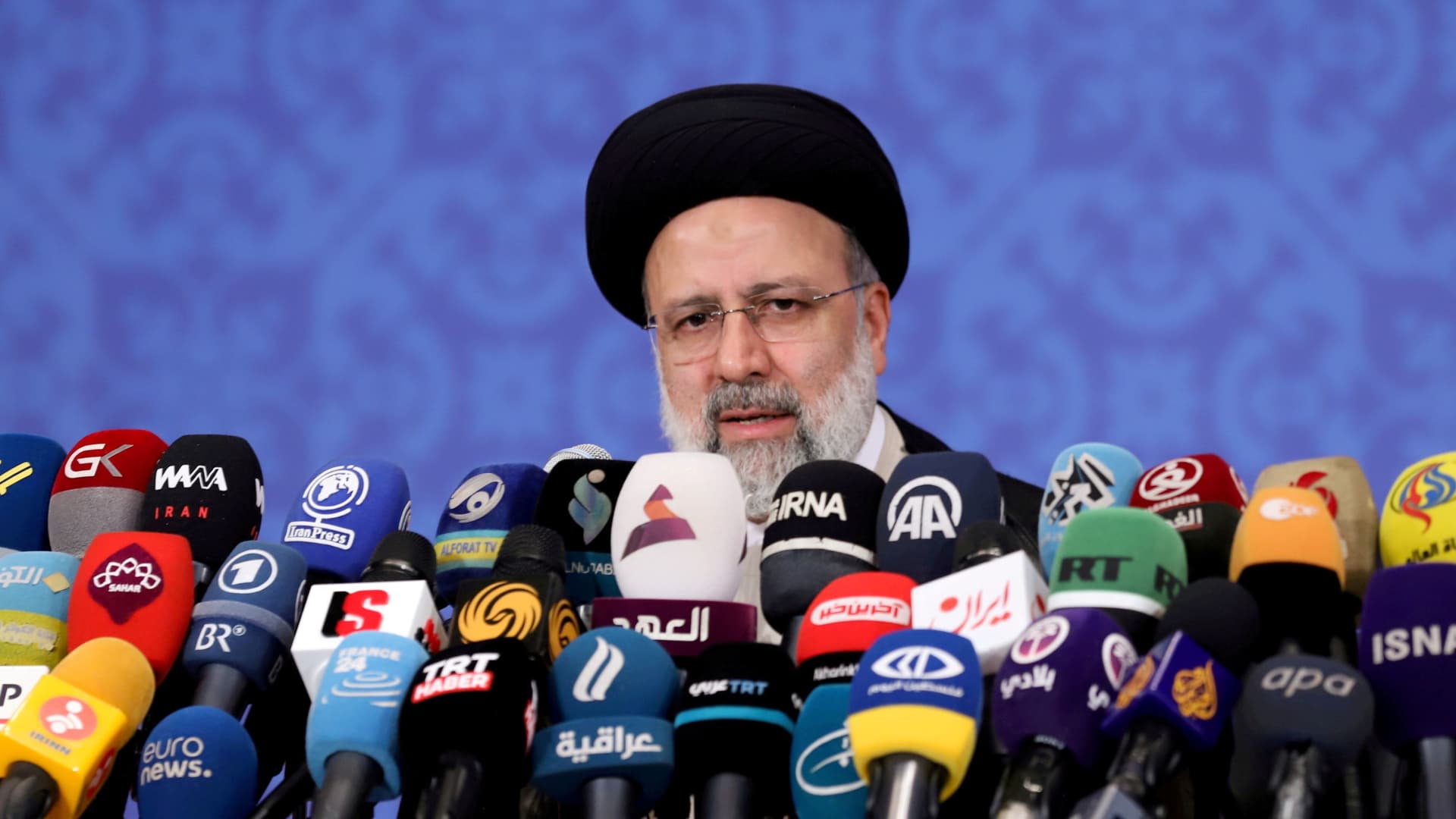
- Saudi Foreign Minister Prince Faisal bin Farhan al-Saud confirmed over the weekend that the first talks between the kingdom and Iran's new government had taken place.
- While Riyadh and Tehran have not conveyed any expectations of a major breakthrough, both sides have expressed support for easing tensions.
- The diplomatic communication is a marked difference from the current state of affairs between the U.S. and Iran.
DUBAI, United Arab Emirates — The U.S. welcomes the news of direct communication between longtime Middle Eastern rivals Saudi Arabia and Iran, a Biden administration official told CNBC on Monday, at a time when tensions are high in the region and Iran's recently-elected government has not held back in expressing its animosity toward the West.
"Our regional partners, first of all, like the UAE, are absolutely critical to us as partners in economics, in regional security, in mutual cooperation," Jennifer Gavito, deputy assistant secretary for Iran and Iraq at the State Department's Bureau of Near Eastern Affairs, told CNBC's Dan Murphy in Dubai.
Get DFW local news, weather forecasts and entertainment stories to your inbox. Sign up for NBC DFW newsletters.
"And so we welcome their contributions to regional stability. With regard to the announcement of direct talks between Saudi Arabia and Iran, we welcome that. We welcome any direct talks that lead to greater peace and stability in the region."
The discussion took place at the Dubai Expo, the Gulf city's six-month long mega-event that it hopes will boost tourism and investment and further raise its global profile. Gavito was the highest-ranking U.S. official to attend the event thus far.
Saudi Foreign Minister Prince Faisal bin Farhan al-Saud confirmed over the weekend that the first talks between the kingdom and Iran's new government had taken place, saying that the latest round happened on Sept. 21.
"These discussions are still in the exploratory phase. We hope they will provide a basis to address unresolved issues between the two sides and we will strive and work to realize that," he said during a news conference Sunday.

Iran and Saudi Arabia support opposing sides of numerous regional disputes and violent conflicts including those in Yemen, Syria and Lebanon. Saudi Arabia has accused Iran of attacking its oil infrastructure and of providing Yemen's Houthi rebels with missiles used to attack the kingdom.
Money Report
While Riyadh and Tehran have not conveyed any expectations of a major breakthrough, both sides have expressed support for easing tensions.
The diplomatic outreach is a marked difference from the current state of affairs between the U.S. and Iran, despite a fleeting return to negotiations over the Iran nuclear deal in the early months of the Biden presidency. The Obama-era 2015 nuclear deal, formally known as the Joint Comprehensive Plan of Action, lifted sanctions on Iran in exchange for curbs to its nuclear program.
But the deal has essentially been on life support in the years since the Trump administration unilaterally withdrew the U.S. from the agreement and reimposed sweeping sanctions on Iran, crippling its economy.
In response, Iran has gradually reduced its compliance to the deal, increasing uranium stockpiling and enrichment levels far beyond the parameters set out in the JCPOA and to a level that many in the international community say is alarming.
Tehran insists that its moves are within its sovereign rights and that they can be reversed if the U.S. lifts sanctions. Meanwhile, the Biden administration says it is ready to return to the negotiating table, but will only lift sanctions if Iran reverses its JCPOA breaches first.
Iran's new president Ebrahim Raisi, a hardline and vocally anti-Western cleric, slammed the U.S. during his first United Nations speech in September, calling Washington's sanctions — especially during the pandemic — "crimes against humanity."
On Saturday, Iran's foreign minister said that Washington attempted to discuss restarting nuclear negotiations the previous month, but that Tehran asked the U.S. to release $10 billion of its frozen assets as a show of goodwill. The U.S. has not yet officially responded to Iran's request.
"We've seen these reports, and I'm not in a position to talk about what specific sanctions relief we may offer," Gavito said. "That being said, the nature and sequencing of sanctions relief takes place inside the negotiations themselves. So the ball is really in Iran's court here."
"We are prepared through these negotiations that we have conducted in good faith to return to mutual compliance of the JCPOA," she added. "We hope Iran will do that as well. We think it's in their best interest. But again, the ball is really in their court."






